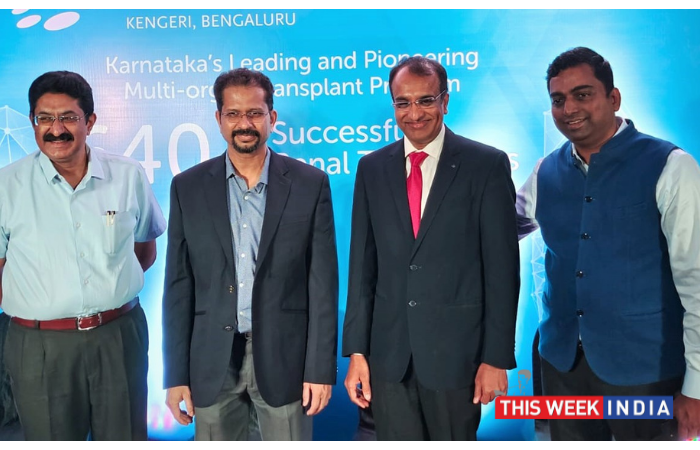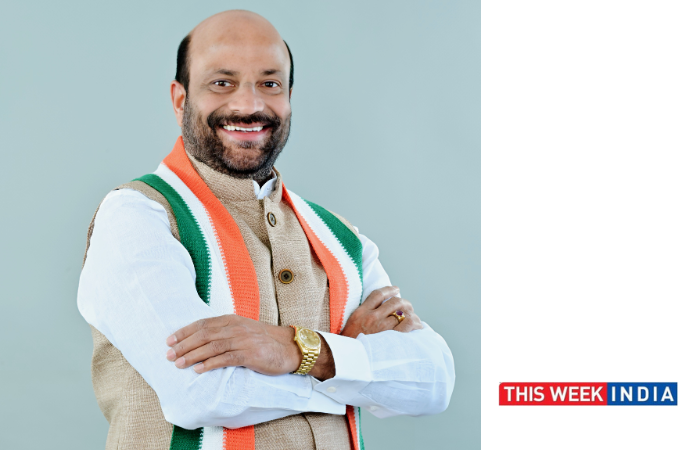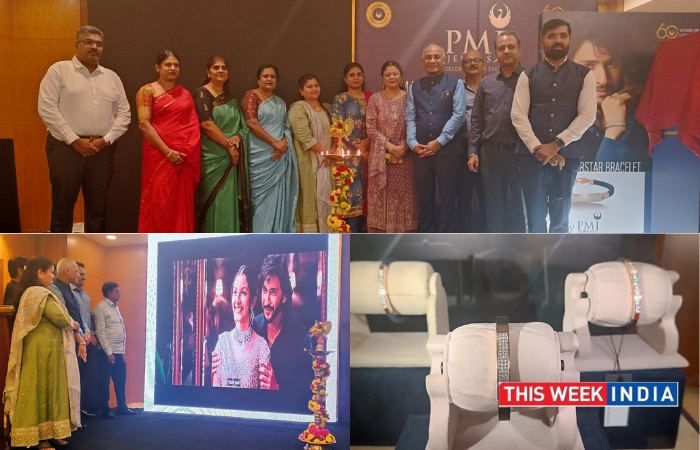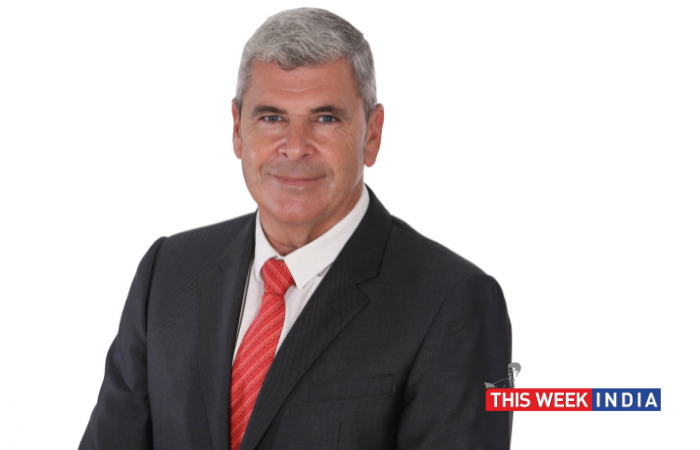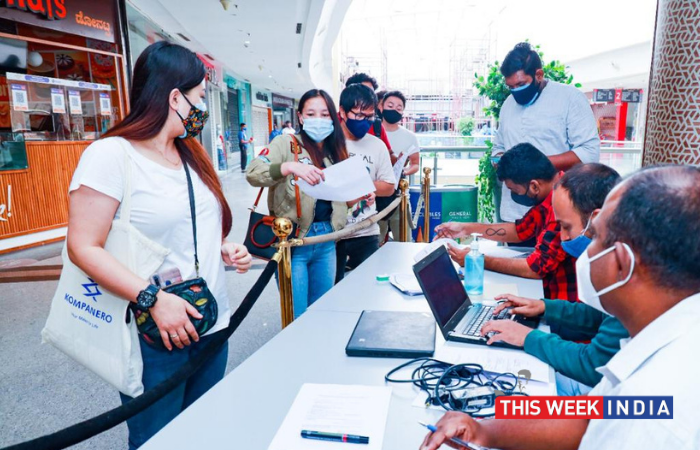- The hospital successfully performed 468 living- donor and 172 cadaver donor transplants reaching 640 transplants in total, since inception in 2009.
- Out of all the 70 transplants performed in the year 2021, 22 recipients and donors underwent transplant after recovering from COVID 19.
- Doctors are witnessing a rapid increase in cases of chronic kidney disease and ESRD (End Stage Renal Disease) among young population due to lifestyle changes like diet and obesity
Bangalore March 17th, 2022: BGS Gleneagles Global Hospital continues to display inimitable expertise in organ transplant and successfully adds another feather to its cap by completing 640+ kidney transplants in the span of 12 years. In the midst of the COVID pandemic, the hospital treated critical End stage cases, considering saving lives and robust care as their motto. Adhering to COVID norms laid by the government, the team performed 39 transplants (2020) and 70 transplants (2021), as the doctors witnessed a gradual increase in the number of ESRD cases. Out of all the transplants performed in the year 2021, 22 recipients and donors underwent transplant after recovering from COVID 19. In the last 2 years, 4 couples underwent PKE (Paired kidney exchange) and the doctors also performed 4 ABO incompatible transplants.
The hospital has state-of-the-art infrastructure and a highly experienced team of specialists who are well equipped to treat all kinds of complex kidney diseases and transplants including ABO incompatible, ESRD and preemptive transplant. All the procedures done in the hospital were performed maintaining international standards since inception, hence the hospital has been recommended widely to the national and international patients.
Today, large populations in India and across the world are seeing high demand for organs, especially for kidney transplants. However, doctors are witnessing that the numbers for living donors (mostly the family members) are more in comparison to cadaver donors. BGS Gleneagles Global Hospital in total has performed 468 living- donor transplants and 172 cadaver donor transplants. Unfortunately, many patients with ESRD are waiting for their turn for transplant for many years. There is a shortage of organs to meet the increasing demand, which brings the need to encourage cadaveric donors and spread awareness about organ donation in the society. In collaboration with a government organization, Jeevasarthakathe (who have plays a significant role in spreading awareness about organ donation), BGS Gleneagles Global Hospital has organised various programmes and events in tier 2 and tier 3 cities.
The Head of the Department of Kidney transplants comments about the milestone, Dr Anil Kumar BT, Senior Nephrologist & Transplant Physician at BGS Gleneagles Global Hospital, Bengaluru said, “Organ donation and transplantation programs suffered a major setback during the (COVID-19) pandemic. Transplant numbers dropped by about 50-90% during the peak of the pandemic. The effects of COVID were both direct and indirect. The indirect effect on kidney transplant included the transplant recipients missing their regular visits, not getting the lifesaving immunosuppressive medications on time. Some of them developed rejections and worsening kidney failure. People on cadaver waiting list had to wait further for their turn and those with living donors also had to wait because of the strict guidelines and also because of the fear of getting infected. Our patients were connected round the clock through teleconsultation and all necessary arrangements were made for making the medications available. Amidst the pandemic we could still do about 70 transplants in 2021. Among them 22 recipients and donors underwent transplant after recovering from COVID infection, 4 couples got Swap transplants and 4 ABO incompatible transplants.”
Dr Narendra S, Senior Urologist and Chief Transplant Surgeon at BGS Gleneagles Global Hospital, Bengaluru said, “The pandemic has caused many issues for not just patients here, but also international patients who ended up waiting months for the borders to open and visit us for renal transplantation. Many countries do not have transplantation facilities compelling them to travel here. Transplantation improves the quality of life and survival for all end stage kidney disease patients compared to dialysis. We are witnessing a spike in cases of kidney diseases among older and younger population due to lifestyle diseases such as diabetes and obesity. The pandemic has also compelled people to work from home, leading to sedentary lifestyle, poor diet, stress, hypertension, diabetes and increased BMI. Improved lifestyle and early detection are the only solutions to prevent kidney disease. We are one of the pioneers in kidney transplants having completed nearly 640 kidney transplants with high success rates.”
Biju Nair, Cluster COO, Gleneagles Global Hospitals, Bengaluru: I would like to express my gratitude to our dedicated team of doctors, nursing staff with special expertise in transplants, and transplant coordinators, who could have this journey possible. Our renal transplant services are a key component of our flagship multi-organ transplant program which is also one of Karnataka’s leading units with many firsts to its credit.
In the midst of all the challenges faced during COVID times, our expert team of doctors including Dr Anil Kumar BT, Senior Nephrologist and Chief Transplant Physician, who is the head of the Nephrology department consisting of Dr Rajiv E N, Dr Mohammed Farooq Ahmed, Dr Nithin J; Dr Narendra S, Senior Urologist and Chief Transplant Surgeon who is head of urology department consisting of Dr Seshagiri T V and Dr Naveen M N, Dr Arun M G who is a consultant in the transplant anesthesia and critical care department considered their duty as their first priority.
The team of surgeons and hospital staff caters to patients in the neighboring districts in the Bangalore-Mysore belt, North Karnataka and West Bengal. These camps help patients who live in the outskirts get quality medical care, especially for those who suffer from chronic kidney disease. These outreach programmes and medical support to the underprivileged aim to help spread awareness about the disease and help detect the disease early.

